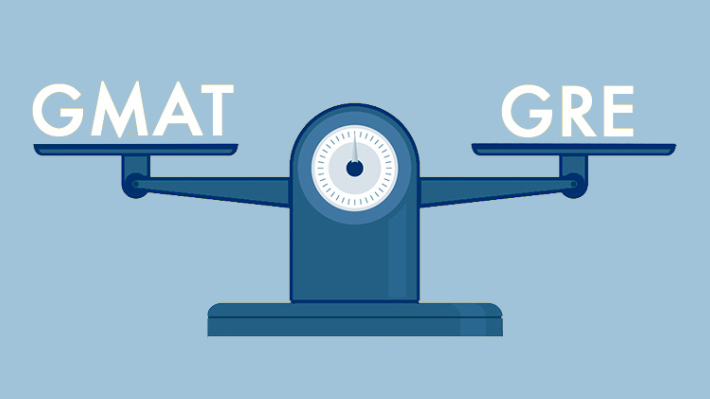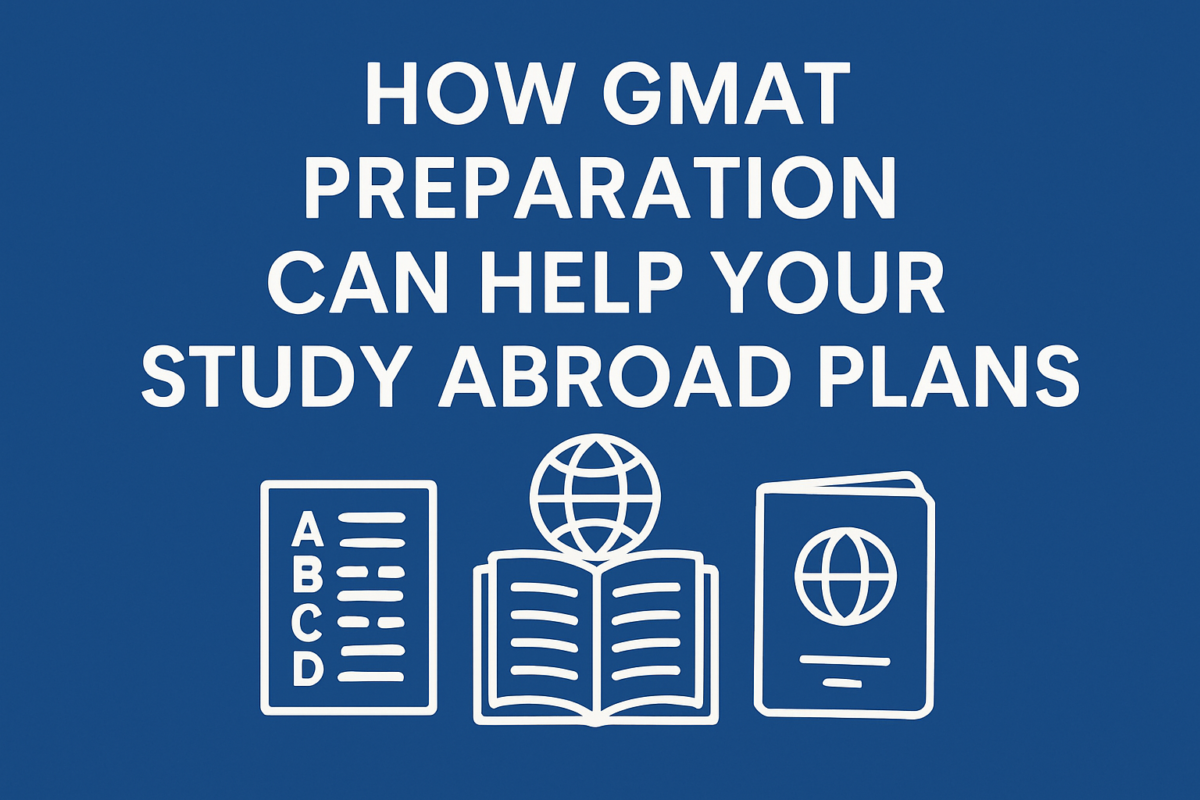Table of Contents
ToggleFor decades, GMAT was the only exam score accepted by b-schools. But now, the GRE, an exam taken to apply to a wide variety of master’s programs is also accepted. This triggered the debate about GMAT vs GRE. Which test is easier, GMAT or GRE? What is better for MBA admission? What do top business schools want from their applicants? Is GRE easier than the GMAT? Let no one else decide the answer of these questions for you. Here is everything you need to know about GMAT vs GRE so that you can assess for yourself which exam is easier – GMAT or GRE and decide which one to take. Let’s dive in
Which Exam is Easier - GMAT or GRE?
Multiple opinions exist on the internet comparing the difficulty levels of the test. They suggest that one exam is significantly easier than the other. However, that is a simplistic understanding of the nature of these competitive exams.
Both are aptitude tests designed to check if you possess the critical skills required for professional success in the future. They are both demanding and require dedicated preparation. Several experienced test takers argue that GRE is comparatively easier than GMAT primarily because GMAT has a more challenging Quant section. Having said that, many students struggle with GRE’s verbal section due to its emphasis on vocabulary. Thus, the difficulty of a particular exam vis-a-vis another is dependent on the candidate’s comfort with the quant and verbal sections present in both exams.
Irrespective of the choice of exam, it is imperative for your score to be high if you are aiming for M7 or Ivy League business schools. Both require substantial effort and preparation of at least 300-400 hours.
An essential component for business schools is to keep their academic index high to compete with other premium schools and keep their rank high. Consequently, they harp on the academic performance of all their applicants. This is judged on the basis of college grades and test scores. So, irrespective of the test, high scores become vital. Impressive GMAT and GRE also help in balancing low college grades and emphasize your academic intellect.
So, how should you decide between the two exams? Read on to find out
How to Decide Between GMAT and GRE?
Your decision regarding GMAT vs GRE carries significant weight on your career. Here is what you should consider before taking your decision:
Type of graduate program you seek to join:
If you are unsure of what course you want to pursue and want to keep your options open, it is advisable to write the GRE. If you seek a master’s in computer science, engineering disciplines, biotech, psychology, etc., you should focus on performing well on GRE. On the other hand, if you are clear that you want to pursue MBA to boost your career, you should focus primarily on the GMAT. However, if you want to keep your options open between MBA and Masters, it is advisable to take the GRE.Skills tested on each:
The exam you excel in depends on your skill set. Many argue that the Quant section of the GMAT is tougher than that of the GRE. Further, the verbal section of the GRE harps more on vocabulary compared to the GMAT’s emphasis on meaning and grammar. Generally, the GMAT is ideal for those who have strong quantitative and analytical skills, and excel at interpreting data presented in charts, tables, and text to solve complex problems. The GRE math section, on the other hand, tends to be more straightforward.Performance on practice test:
Before deciding which exam should you take, give the official practice tests of both the GMAT and GRE as a diagnostic exam to analyze where you stand. Is one score significantly better than the other? Did you find one of the two considerably more challenging? It is advisable to be aware of your comfort level as well as the starting point for either of the exams before you take the final call.Target business schools:
If you are sure about an MBA and are not keen on giving the GMAT, check the policies of your target schools if they accept both exam scores. Do your research by speaking to seniors and alums of the school to figure out if they prefer one exam over another.
Difference Between GMAT and GRE for MBA
Both exams are vastly different and any direct comparison is difficult to make since they test different aspects.
- Difference in the syllabi of GMAT and GRE
| Section | GRE Syllabus | GMAT Syllabus |
|---|---|---|
| Analytical Writing | Argumentative Essay Issue-Based Essay |
Argumentative Essay |
| Verbal | Modifiers and Parallelism Idioms and Idiomatic Expressions Verb Tense Pronoun Agreement Subject-Verb Agreement Nouns, Adjectives, Pronouns Synonyms and Antonyms |
Modifiers and Parallelism Idioms and Idiomatic Expressions Verb Tense Pronoun Agreement Subject-Verb Agreement Nouns, Adjectives, Pronouns, Boldface Synonyms and Antonyms Assumptions Paradox Strengths and Weaknesses |
| Quantitative | Algebra Geometry Arithmetic Data Analysis |
Algebra Geometry Arithmetic Data Analysis |
2. Difference in the structure of GMAT and GRE
| Differentiator | GRE Exam | GMAT Exam |
|---|---|---|
| Number of verbal sections | 2 | 1 |
| Number of verbal questions | 40 (20*2) | 36 |
| Duration for section | 60 mins (30*2) | 65 mins |
| Score range | 130-170 | 0-60 |
| Differentiator | GRE Exam | GMAT Exam |
|---|---|---|
| Number of Quant Sections | 2 | 2 |
| Number of Quant Questions | 40 (20*2) | 31 |
| Duration of Section | 60 (30*2) | 62 (31*2) |
| Score Range | 130-170 | 0-60 |
3. Other differences between GMAT and GRE
Both exams are computer-adaptive, have scores valid till 5 years and have a sizeable fee (USD 205 for GRE and USD 250 for GMAT), there are fundamental differences in their nature.
- While the GRE requires you to argue, the GMAT requires you to analyze what has been argued.
- The style expected from GRE takers is more abstract and draws from various sources and disciplines for examples or references, whereas the GMAT is more concrete and analytical.
- In the GMAT, candidates cannot review their previous answers or go back. The GRE, on the other hand, allows students to check their previous answers.
It is only natural to wonder about choosing GMAT vs GRE for MBA applications. As mentioned above, the underline principle is to choose an exam you can ace and impress the admission committee. But there is more to it as well. Read why it helps to submit GMAT scores for MBA. However, there are cases when submitting a GRE score is completely fine. Read till the end to find out more:
GRE began to be accepted so that the underrepresented pools of candidates could apply and stand a chance to enter the MBA cohort. The diversity that it would bring within classroom discussions was particularly important for most b-schools. However, even though several business schools accept both and are ambivalent about their preference, a GMAT score is seen as a plus. Let’s understand the benefits of the GMAT over the GRE:
- GMAT is still preferred by several colleges. Analysis of data from the Application Trends Survey, an annual survey of global graduate business school admissions offices, shows that 7 out of 10 applicants submitted GMAT scores to the top 100 MBA programs. While schools like HBS, Wharton, and Stanford GSB clearly state that they don’t prefer the GMAT over GRE and vice versa, they convert the GRE to the GMAT score to compare MBA applications objectively.
- When applying for business-oriented programs such as MBA or MiM, a GMAT score is favored because when an applicant submits GMAT, they unequivocally imply that they are committed to enrolling at a graduate business school and not a master’s program. Often, candidates with engineering or science backgrounds submit GRE scores because they are also applying for master’s programs in other colleges. This is particularly off-putting for ad-coms because it shows that you are confused and may not end up accepting their offer, impacting their rank.
3. GMAT makes it possible for candidates to get accepted without work experience. Students who are accepted without work experience usually have an outstanding academic record, extracurriculars, internships, and letters of recommendation. But the common denominator remains an exceptionally high GMAT score of at least 770.
4. If the applicant comes from a traditional or over-represented demographic or professional role, the GMAT is considered the ideal choice. GRE may be accepted but it can be perceived as the easier choice quantitatively than the GMAT. Your plan A should always be to secure a 740+ on GMAT.
5. Scholarships: A high GMAT score is absolutely essential for securing a substantial scholarship for your dream school since MBA scholarships are available only for GMAT scores.
6. Several employers, especially the top-tier consulting firms, investment banks, and others, consider GMAT scores in job applications, thus paving the way for you to land a competitive and high-paying job after business school.
7. The GMAT exam measures the skills most relevant to succeed in MBA and your business career thereafter. Each of the four sections of the GMAT target honing specific skills that are highly valued and necessary to the careers post-MBA. Thus, when you prepare for the GMAT, you are investing time not only for getting through a b-school but also for sharpening skills for your career
When is it Acceptable to Submit GRE for MBA?
- If the quant percentage is over 80%, it successfully establishes your quant aptitude.
- Colleges like INSEAD focus on the percentage breakdown in verbal vs quantitative. The ratings are assigned to scores based on a 1-5 scale, so 5 = 90%+, 4 = 80%+, 3 = 70%+, 2 = 60% +, 1 = 50%+. This is true for both the GMAT and the GRE. Aim for 70%+, ideally 80%+, to demonstrate that the prospective student can cope with the rigor of the program.
- In case you are weak in GMAT but have a great all-round profile otherwise, you can submit GRE in some colleges. If you are struggling with the math side of the GMAT and can score very high on GRE (given that the quantitative section of GRE is easier), consider submitting a higher GRE score than a low GMAT score.
Conclusion
Be it GRE or GMAT – your score should be 10-20 points higher than the incoming batch’s average score in the respective exam to maximize your chances of admission. However, bear in mind that while test scores are extremely important and can cover up for average college grades, they are only a part of the application. Reviewers consider all elements of your application to form a complete picture of who you are and what have you done so far. Test scores will not compensate for weak sections in your applications. Thus, you need to work towards an application that makes you stand out in this competitive world and establishes you as a unique candidate who brings a lot to the table.














